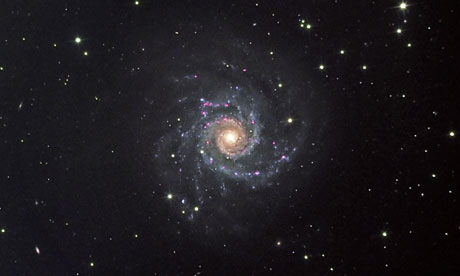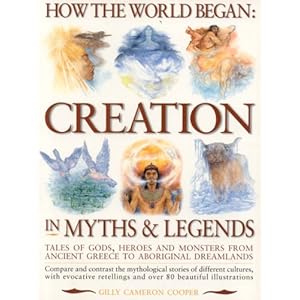I wonder how many of you spent some time on Friday
evening watching the opening ceremony of the Olympics.
You may not have watched it all – it was a
very long evening of viewing – but you may have watched some of it. It was in all senses of the word a
spectacular event. Danny Boyle – local
man from Radcliffe, Bury - certainly did good.
For me it was the music that I found brilliant, especially the use of
voices without music - that opening version of Jerusalem sung by a young boy
soprano – well it sent shivvers tingling down my spine. For my colleague Danny Crosby what stood out for him was another simple human
voice, right in the middle of the ceremony. It began in the transitional moment
just before the parade of the nations. Emeli Sande, sang beautifully and
movingly the classic hymn and great sporting anthem “Abide With Me”,
accompanied by a dance troop and under a beautiful orange light. This was a
tribute to the victims of the London 7/7 terror attacks, which took place the
day after Britain had won the 2012 Olympic bid.
As
the historical tableau unfolded itself, each scene more
and more spectacular than the preceding one I found my mind wandering off into
thinking about all those people who are not able to sit in the comfort of a
home and watch this event. Not by choice
but by circumstance. It is always the same for me when I find myself watching
something grand, or attending some event such as a wedding where people seem to
only be able to enjoy themselves by the spending of large amounts of
money. It is the same feeling I get at
Christmas when everything is about the material and less about the spiritual. A
part of me wants to shout out and ask what about those who haven’t got all this
or access to all this affluence. And I
am not thinking about those in other poorer countries but the people here in
this country, this town even – in this wonderful England that we saw portrayed so
splendidly in that ritual on Friday evening.
A few weeks ago Helen came to me with the song that
the choir sang for us this morning. I
took the words home to read and I found a recording on the internet and it was
beautiful. Whether performed by Graham Kendrick, who wrote it, accompanied
by his acoustic guitar or by a church choir and organ - the song sounded really
special.
The first two verses in particular stood out . . .
Beauty for
brokenness
Hope for despair
Lord, in your suffering
This is our prayer
Bread for the children
Justice, joy, peace
Sunrise to sunset
Your kingdom increase!
Shelter for fragile lives
Cures for their ills
Work for the craftsman
Trade for their skills
Land for the dispossessed
Rights for the weak
Voices to plead the cause
Of those who can't speak
It has seemed over the last few weeks that these words have taken on more and more meaning. Particularly as glitches in computer programmes have caused serious errors in banking circles. The blog by Jill Segger (http://www.ekklesia.co.uk/node/16780)
Hope for despair
Lord, in your suffering
This is our prayer
Bread for the children
Justice, joy, peace
Sunrise to sunset
Your kingdom increase!
Shelter for fragile lives
Cures for their ills
Work for the craftsman
Trade for their skills
Land for the dispossessed
Rights for the weak
Voices to plead the cause
Of those who can't speak
It has seemed over the last few weeks that these words have taken on more and more meaning. Particularly as glitches in computer programmes have caused serious errors in banking circles. The blog by Jill Segger (http://www.ekklesia.co.uk/node/16780)
highlighted how
something like that can be catastrophic for families or individuals who are
teetering on the edge of poverty. I was
able to shrug it off the fact that I could not use my cash card for a few days,
but what if I wasn’t in a position to do that.
What would I have done or been able to do? When my card failed as I tried to buy petrol
on the way down to Oxford one of my passengers stepped in and saved my
day. But what if there was no one there
with me to do that?
Earlier
this month at the writing workshop I attend we discussed the question of
homelessness. Two people from the team
who work with Petrus – a charity that supports homeless people in Rochdale - spoke to us about their work. For 40
years Petrus has provided help for those who have slipped out of the system and
at the moment they help support 60 or more people in 7 houses and yet it is not
enough to meet the demand. And this
service is in danger because of the huge cuts there have been since the present
government removed funding saying we should be able to rely on ‘the big
society’. How can we provide ‘shelter
for fragile lives’ as more and more people find themselves closer and closer to
the brink of poverty as Jill Segger pointed out.
At the writing workshop I was reminded of
the Ralph McTell song, ‘The Streets of
London’, which he was renowned for in the 70’s.
I remember it because I went to London to
watch Ralph McTell at a recording for ‘In
Concert’ in 1974. I was accompanying
a group of children from the school where I was teaching. As we queued to go in, five of us were
selected to sit on the stage for the recording.
So if you ever see a recording of ‘Ralph
McTell In Concert’ then there I am sitting
in front of a backdrop that shows scenes of the homeless. I can never hear the song without remembering
those larger than life images portrayed on the set.
The Chorus:
So
how can you tell me you're lonely
And say for you that the sun don't shine?
Let me take you by the hand and lead you through the streets of London
I'll show you something to make you change your mind
And say for you that the sun don't shine?
Let me take you by the hand and lead you through the streets of London
I'll show you something to make you change your mind
Indicates that the song is really about loneliness and yet the
second verse has always remained the most vivid image for me.
Have
you seen the old girl
Who walks the streets of London
Dirt in her hair and her clothes in rags?
She's no time for talking
She just keeps right on walking
Carrying her home in two carrier bags
Who walks the streets of London
Dirt in her hair and her clothes in rags?
She's no time for talking
She just keeps right on walking
Carrying her home in two carrier bags
Can you imagine what it might be like to have nothing except
what you can carry in these?
What chance that someone who has so little could have seen that
spectacular opening celebration on Friday evening? More likely they would have been walking the
streets looking for somewhere to sleep for the night. Or, maybe scavenging in bins for scraps of
food to eat; or sitting on the street begging for money which in all likelihood
would be spent on cheap alcohol in an attempt to block out the desperation of
their situation. No there is not much
chance is there, and if they had would they have felt that there was anything
worth celebrating?
My
favourite poet, Rainer Maria Rilke wrote in his Sonnets to Orpheus II, 19
Gold leads a pampered life, protected by banks,
on intimate terms with the best people.
The homeless beggar is no more than a lost coin
fallen behind the bookcase or in the dustpile under the bed.
In the finest shops, money is right at home,
loving to parade itself in flowers, silk and furs.
He, the silent one, stands outside this display.
Money, near him, stops breathing.
How does his outstretched hand ever close at night?
Fate, each morning, picks it up again,
holds it out there, naked and raw.
In order to grasp what his life is like,
to see it and cherish it, you would need a song,
a song only a god could bear to hear.
on intimate terms with the best people.
The homeless beggar is no more than a lost coin
fallen behind the bookcase or in the dustpile under the bed.
In the finest shops, money is right at home,
loving to parade itself in flowers, silk and furs.
He, the silent one, stands outside this display.
Money, near him, stops breathing.
How does his outstretched hand ever close at night?
Fate, each morning, picks it up again,
holds it out there, naked and raw.
In order to grasp what his life is like,
to see it and cherish it, you would need a song,
a song only a god could bear to hear.
I
am not sure how I can reconcile all this, or what I can do, if anything, to
alleviate some of this poverty, this suffering, this tremendous problem for so
many. I do give food to food banks, I do answer pleas from charities such as
Petrus as much as I can. But I think one
of the main things I can do is make sure that I notice - and that ‘I see’, that
I remember when I am enjoying the luxury of watching the spectacular on the TV
that not everyone is as fortunate as you or me.
I
can also hold them in my hearts and in my prayers and hope that I can find some
beauty in their brokenness; and that I can find a way to put in to action in
some way the sentiments of Graham Kendrick’s song
When
he says:
God of the poor,
friend of the weak,
give
us compassion we pray
melt our cold hearts
let tears fall like rain
Come, change our love
from a spark to a flame
melt our cold hearts
let tears fall like rain
Come, change our love
from a spark to a flame
Come,
change our love
from a spark to a flame
from a spark to a flame
So may it
be. Amen


